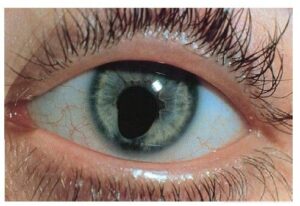
Anushka Super Speciality Eye Hospital
Call: 90044 44422 / 99213 44422 | Timings : 8.30 a.m to 5.30 p.m (Mon-Sat) | Add: Shri Swami Samarth Soc, Kaneri Dhamankar Naka, Bhiwandi




Accredited for Quality Care
When to Choose ICL Over LASIK for Vision Correction
anushka
17 November 2025
By Dr. Anushka’s Super Speciality Eye Hospital, Bhiwandi — NABH & HOTA Certified
For many people who wear glasses or contact lenses every day, the dream of waking up to clear, natural vision is priceless. Over the years, LASIK surgery has become one of the most popular solutions for permanent vision correction. But what if your eyes are not suitable for LASIK due to thin corneas, high power, or dryness?
This is where the ICL (Implantable Collamer Lens) comes in — a revolutionary alternative that offers exceptional vision quality without reshaping your cornea.
At Dr. Anushka’s Super Speciality Eye Hospital, Bhiwandi, our team specializes in advanced refractive surgeries, including LASIK and ICL procedures, helping patients choose the right treatment for their unique eyes.
Let’s explore when ICL is a better choice than LASIK — and why this technology is transforming the future of vision correction.
Understanding LASIK
LASIK (Laser-Assisted In Situ Keratomileusis) works by reshaping the cornea — the clear front surface of the eye — using a laser. This changes how light rays focus on the retina, improving vision.
It’s a quick, safe, and proven method, but it requires certain conditions to be met:
- The cornea must be thick enough for laser reshaping.
- The patient’s refractive power should fall within a specific range.
- The eye must be free from dry eye disease or other surface disorders.
When these requirements aren’t met, LASIK may not be suitable — and that’s when ICL becomes the preferred option.
What Is ICL?
ICL (Implantable Collamer Lens) is a thin, soft lens made from a biocompatible material called Collamer. It is placed inside the eye, behind the iris (the colored part) and in front of the natural lens.
Think of it as a contact lens that lives inside your eye permanently. It corrects vision errors like myopia (nearsightedness), hyperopia (farsightedness), and astigmatism — without altering your corneal tissue.
The Procedure: Simple and Painless
ICL implantation is a quick, outpatient procedure typically lasting 15–20 minutes per eye. Here’s how it’s done:
- Preoperative Evaluation:
Detailed measurements of your eye — corneal thickness, anterior chamber depth, and pupil size — are taken to customize your ICL lens. - Anesthesia:
Local or topical anesthesia (eye drops) is applied, ensuring a completely painless procedure. - Lens Insertion:
Through a microscopic incision (around 3 mm), the surgeon gently places the folded ICL lens behind your iris. - Lens Positioning:
Once inside, the lens unfolds and sits perfectly in place, invisible to both you and others. - Postoperative Care:
You can go home within an hour, and most patients notice clearer vision within a few hours.
At Dr. Anushka’s Super Speciality Eye Hospital, we use FDA-approved EVO Visian ICLs, ensuring world-class safety and optical performance.
LASIK vs ICL – Key Differences
Feature | LASIK | ICL |
|---|---|---|
Technique | Cornea reshaped by laser | Lens implanted inside the eye |
Suitability | Normal corneal thickness | Thin or irregular cornea |
Vision Range | Up to -8.00D (approx.) | Up to -18.00D (or higher) |
Reversibility | Permanent | Reversible and replaceable |
Dry Eye Risk | May worsen dryness | Minimal to none |
Recovery Time | 2–3 days | 1–2 days |
Pain Level | Minimal | Minimal |
Long-Term Safety | Stable for suitable eyes | Safe, long-term biocompatible material |
Both procedures deliver outstanding vision results — but your eye structure and refractive error decide which one suits you better.
When Is ICL the Right Choice?
You may be an ideal candidate for ICL if you have any of the following:
- Thin Corneas:
When the cornea is too thin for laser reshaping, ICL provides a safe alternative since it doesn’t alter the corneal structure. - High Myopia or Hyperopia:
LASIK has a correction limit; ICL can treat much higher powers effectively. - Dry Eyes:
If you already have dryness, LASIK may worsen it slightly, while ICL keeps the corneal surface untouched. - Desire for Reversibility:
LASIK permanently reshapes the cornea, but ICL can be removed or replaced if needed in the future. - Desire for Superior Optical Quality:
ICL offers high-definition vision, often with better night vision and contrast sensitivity compared to LASIK in high power cases.
The Science Behind Collamer
The ICL is made of Collamer, a collagen copolymer that is biocompatible, flexible, and UV-protective.
This means your eye naturally accepts the lens without inflammation or reaction.
Its anti-reflective and UV-blocking properties protect your retina from harmful light exposure — a unique advantage over standard LASIK.
Benefits of ICL Surgery
- Outstanding vision quality — clearer, sharper, and more natural vision.
- Safe for thin corneas — no tissue removal.
- Reversible — lens can be removed anytime if vision needs change.
- No dryness — corneal nerves remain untouched.
- Fast recovery — most patients resume normal life within 1–2 days.
- Protective against UV rays.
- Stable long-term results.
At Dr. Anushka’s Super Speciality Eye Hospital, our refractive surgeons are trained to perform ICL with precision and ensure minimal post-surgery discomfort.
Recovery and Aftercare
After ICL implantation, your doctor will prescribe antibiotic and anti-inflammatory eye drops for 1–2 weeks.
You should:
- Avoid rubbing your eyes for the first few days.
- Use prescribed drops regularly.
- Avoid swimming or dusty environments temporarily.
- Attend follow-up visits for eye pressure and lens position checks.
Most patients notice 20/20 or better vision within 24 hours.
Common Questions About ICL
1. Will I feel the lens inside my eye?
No. The ICL is extremely thin and flexible. Once it’s in place, you won’t feel or see it.
2.Can ICL be removed later?
Yes. The lens can be safely removed or replaced anytime if needed.
3.Is ICL painful?
Not at all. It’s performed under numbing drops, and patients report zero pain.
4.How long does the ICL last?
ICL is designed to last a lifetime, maintaining stable vision for decades.
5.Is ICL more expensive than LASIK?
Yes, slightly — but it offers greater flexibility and suitability for complex eye conditions.
Why Choose Dr. Anushka’s Super Speciality Eye Hospital for ICL Surgery
- First NABH-accredited eye hospital in Bhiwandi
- HOTA-certified for corneal transplants and advanced eye care procedures
- Experienced refractive surgeons trained in EVO ICL implantation
- Fully equipped NABH-standard operation theatres
- FDA-approved lenses and precision tools for safest outcomes
- Personalised screening to select the right lens and plan your care
We believe that refractive surgery is not just about removing glasses — it’s about providing long-term comfort, clarity, and confidence.
Our hospital uses latest diagnostic technologies like Pentacam corneal mapping, anterior segment OCT, and non-contact tonometry to ensure complete accuracy before every procedure.
LASIK vs ICL: Which One Should You Choose?
If your corneas are healthy and your power lies within the LASIK range, LASIK remains an excellent choice.
However, if you have thin corneas, high myopia, or dryness, ICL offers a safer, reversible, and equally effective solution.
During your consultation at Dr. Anushka’s Super Speciality Eye Hospital, our specialists perform a thorough refractive evaluation and guide you toward the best option for your eyes.
The Future of Vision Correction
With the evolution of refractive technology, ICL represents the next generation of permanent vision correction.
Its reversibility, safety, and optical precision make it a superior option for patients previously not suitable for LASIK.
The latest EVO Visian ICL models come with a central port design, eliminating the need for preoperative iridotomy and enhancing fluid circulation — making the procedure even safer and more comfortable.
Patient Experience at Our Hospital
Patients who undergo ICL at our center often describe the experience as “life-changing.”
They are thrilled with the clarity of vision, especially at night, and appreciate that the eye looks and feels completely natural after surgery.
Our post-surgical follow-up ensures long-term stability, with periodic checks to monitor intraocular pressure, lens position, and overall ocular health.
Conclusion
The choice between LASIK and ICL depends on the unique structure of your eyes. Both are excellent, time-tested solutions — but ICL expands the possibilities for those who were once told they are “not suitable for LASIK.”
At Dr. Anushka’s Super Speciality Eye Hospital, Bhiwandi, we are proud to offer both LASIK and ICL options, allowing you to make an informed decision with guidance from experienced surgeons and the assurance of NABH-level safety standards.
Whether you want freedom from glasses, clearer vision, or simply peace of mind, our team is here to help you every step of the way.
“Your eyes deserve precision, safety, and care — because perfect vision is not just seen, it’s felt.”
Book Your Vision Evaluation
To find out whether LASIK or ICL is right for you, schedule a personalized consultation today.
📍 Dr. Anushka’s Super Speciality Eye Hospital, Bhiwandi
☎️ Contact: 90044 44422
🌐 Website :https://anushkaeye.com/
Recent Posts


